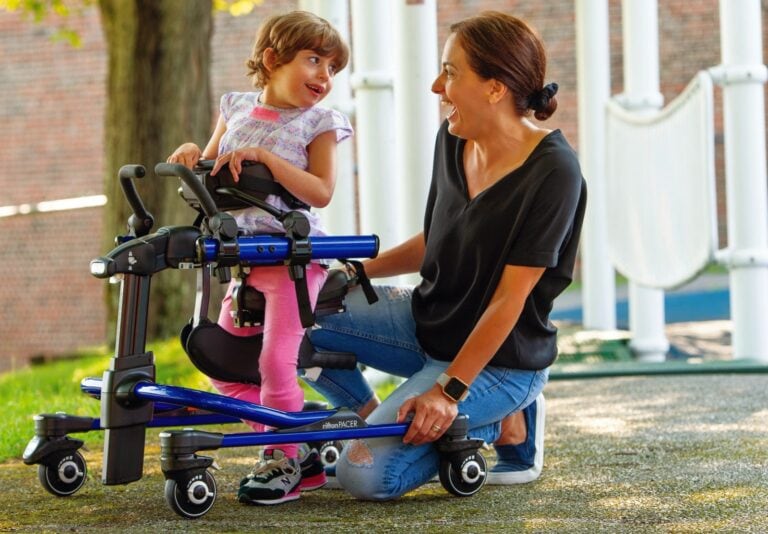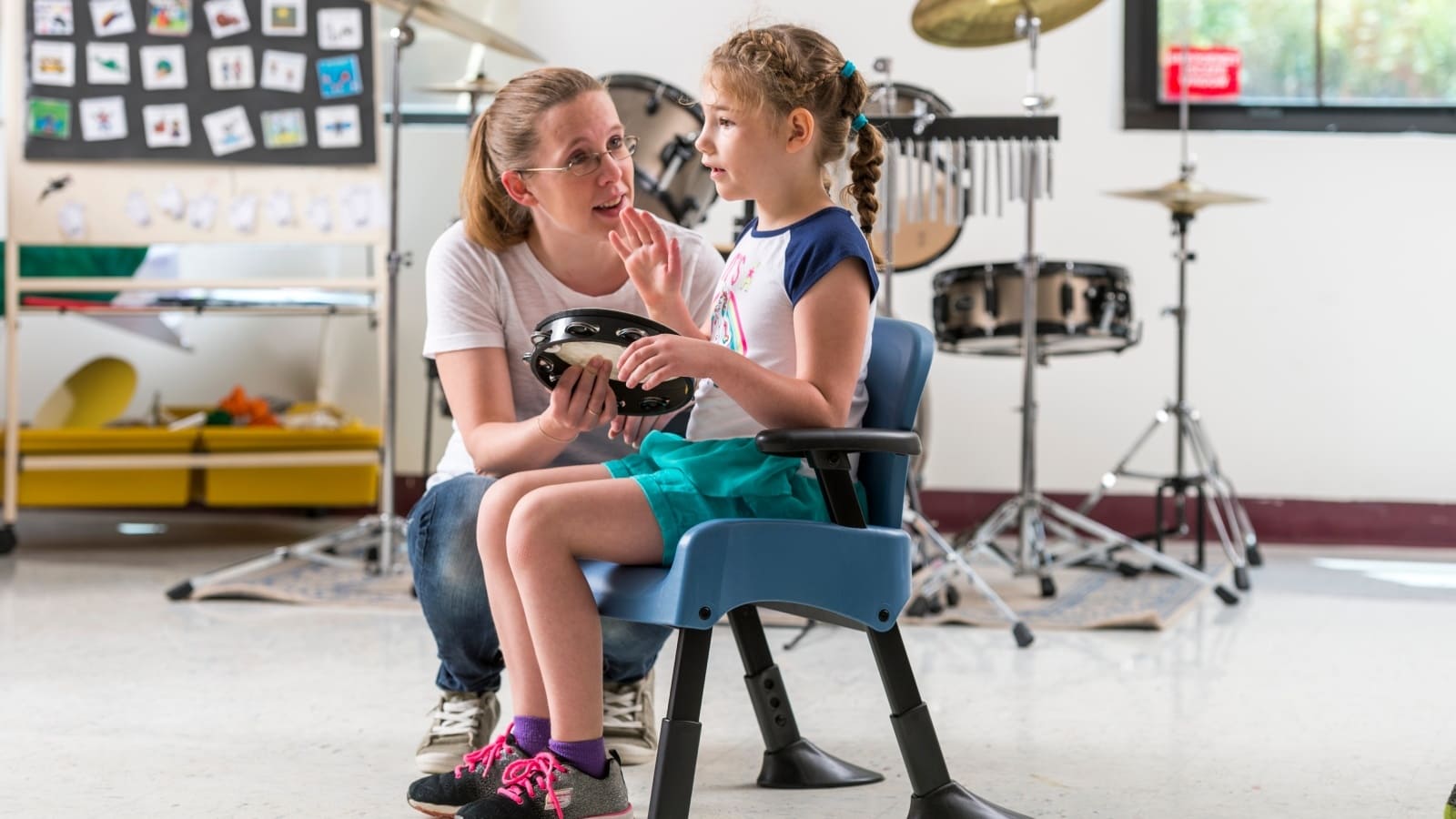On a normal day, physiotherapist Roni Malka makes home visits to 16 children with severe mobility issues in seven locations in southern Israel, including on the border with the Gaza Strip.
These are not normal times.
Following the Oct. 7 Hamas attack that led Israel into war, many families have sought refuge in hotels or temporary accommodation too far away for Malka to reach. Others are in places too dangerous for Malka to reach and remain in their homes.
The few people she continues to treat in Beersheba and Ofakim live in appalling conditions.
“Last week I was treating my child in bed. She can’t walk. She has six siblings, one of whom is autistic. Her mother had just come home from a night shift as a nurse, and her father wasn’t home. All of a sudden, [an air raid] “The alarm went off and we had to take all the children to a secured room,” Malka told ISRAEL21c.
“The two of us [bedridden] “It was very difficult because I had to save the girl. I arrived seconds before the explosion and managed to do it, but families find themselves in this situation many times a day and usually I am unable to help.”
Malka works for the Malki Foundation’s Therapists on Wheels program, a charity that helps severely disabled children live at home with their families.
Therapists on Wheels visits are essential to achieving this goal in geographically and socio-economically marginalized areas, including communities in the western Negev near Gaza where access to therapy is limited.
“These kids need physical therapy at least once a week,” Malka says.
Challenges of War
War inevitably poses great challenges for disabled people and their carers, whether they live at home or in a residential institution.
Various Israeli organizations are stepping up to the challenge, such as the Emergency Special Needs Portal, which connects callers to resources appropriate to their situation, and Access Israel, which helps disabled and elderly people during wartime.
 A child with a movement disorder receives therapy at home. Photo by Lifton, via the Malki Foundation.
A child with a movement disorder receives therapy at home. Photo by Lifton, via the Malki Foundation.
Despite staffing shortages caused by the war, ADI Negev Nahalat Eran Rehabilitation Village, just 12 miles from the Gaza border, has procedures in place to transport 170 severely disabled residents to the village’s protected area during air raids and provide 24-hour care.
For individual families like those supported by Malki Foundation, managing the care of a child with a disability can be extremely challenging. People who are uprooted often lack access to the equipment and services they need, and other children also require special attention during times of uncertainty.
“When the war started, we tried to get in touch with all of the families we were helping,” says Ellie Cohen, program director at the Malki Foundation.
The 20 client families and four therapists (including Roni Malka) live within a 15-kilometer radius of the Gaza Strip, in towns such as Nahal Oz, Netiv Ha’Asala, Netivot, Sderot and Kfar Aza, while others live in southern cities regularly hit by missiles, such as Ofakim, Ashkelon, Ashdod and Beersheba.
“Thankfully, everyone in our family is OK physically, but the trauma will be long-lasting,” Cohen said. “If I had only 15 seconds to get to my mom, [protected room] If you have a child with a disability and you have other children, you can imagine what this means.”
They are afraid
“In Ashkelon, basically one family lives in Mamad; [the disabled child’s special] “They don’t sleep in their beds, so they sleep on their mattresses. Recently, my child fell off the mattress when the alarm went off and hurt himself. He was rushed to hospital. I know how stressful this can be.”
Another Malki Foundation client family reported that their car, which was equipped with a wheelchair lift for their child, was totally destroyed by a missile.
“The government has paid for them to buy a new car, but it has to be ordered and it may take months for the dealer to get it, and then it has to be modified. So they’re stuck at home with this child for months, terrified,” Cohen said.
One family that Roni Malka works with in Ashkelon wants to flee the dangers elsewhere but doesn’t qualify for government assistance and can’t afford to relocate on their own, while their disabled child is denied treatment because Malka can’t get there.
Malka is also dealing with personal stress: Her son is a soldier now serving in Gaza who attended the music festival where Hamas massacred 260 people.
She lives between Netivot and Sderot. “It’s very difficult to live here now. It feels like sleeping in a war zone because you can hear the bombings in Gaza.”
Malki Foundation speech therapist, who lives in Kfar Aza, 1.5 km from the Gaza border, was in Mamad with her 10-month-old baby and other family members for 20 hours before being rescued by the IDF, where 30 of her neighbours were killed.
“We are in daily contact with our therapists to be a source of support and sharing,” Cohen says.
Born from terrorism
The founders of the Malki Foundation understand terrorism very well: this organization was born out of just such a tragedy.
Fifteen-year-old Malka Chana Roth (“Malki”) was one of 16 people killed in a Palestinian terrorist attack at the Sbarro pizza place in Jerusalem on August 9, 2001. Malki helped her parents care for her severely disabled sister and volunteered with other children with special needs.
Her parents, Arnold and Frimet, founded the Malki Foundation to ease the burden on Israeli families raising extremely disabled children at home.
Cohen says the foundation helps any Israeli child in need, whether Jewish or Arab: “We also have an Arab therapist who is primarily Bedouin, but he’s a wonderful man who also treats Jews. This is what the Roth family wants.”
In addition to Therapists on Wheels, the Malki Foundation also provides home therapy in larger cities where therapists are accessible but cost can be a barrier.
“We subsidize 85 percent of the cost of care, which simplifies the complexities of parents’ lives and allows them to manage their children’s treatment themselves,” Cohen said. The foundation also provides long-term loans of specialized equipment for mobility, accessibility and home care.
“Without the availability of Malki Foundation’s services, many families would have had no choice but to place their children in institutions,” he says.
In total, the foundation is supporting 87 children. “Our plan was to scale that up to 100 by the end of the year, but we are now slowing down the intake process,” Cohen told ISRAEL21c.
“Right now we are in a war that has just exploded and no one knows when it will end.”
For more information, click here.

